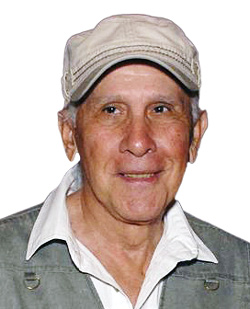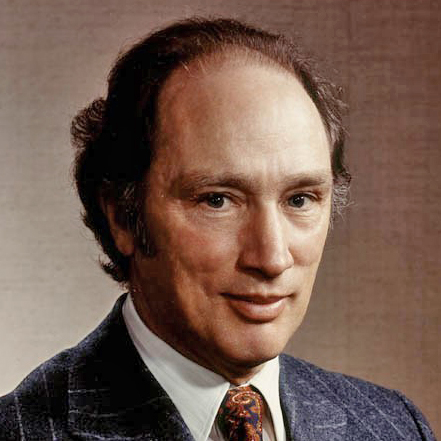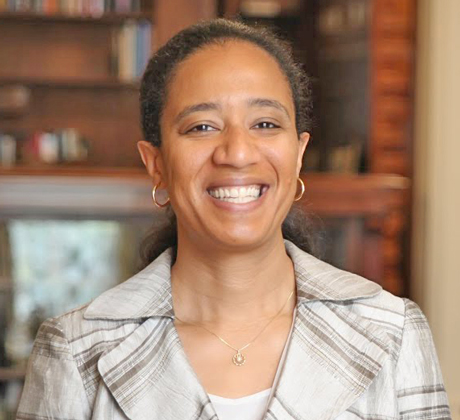October 16, 2019 issue
Authors' & Writers' Corner
‘a just society’

I had started studies at the University of Ottawa in 1965, not far from Parliament Hill. In 1968, Pierre Trudeau, Justin Trudeau’s father, a Liberal, burst onto the political scene in what was called “Trudeau-mania”. He was soon powered by the support of the young and not-so-young, and swept into the office of Prime Minister, a position he served four times. He became Canada’s third longest serving Prime Minister – 15 years and 164 days!
Trudeau was a millionaire with mucho brains, “balls”, and vision – what some might call “a see far man” or a visionary. He saved the breakup of the country by the Quebec “Separatists” in the 1970’s, daring them to prevent him from taking strong action with the words, “Watch me!”, and followed through with the War Measures Act.
He also saved the future of the country with a new, liberal, immigration law, opening its border to immigrants from all countries, regardless of race, class or religion. The result is the modern Canada we have today, a pluralistic, multicultural country. His vision was that if Canada was going to survive and flourish as a country, it needed people with skills, ambition, openness, and drive, wherever they came from. The Canadian population at the time was projected to drop. More room was also made for refugees.

He increased the Federal unemployment support from a few weeks to six months to support the working class. He shook up the economic deity reportedly saying, “the deficit is only a number”. He believed in spending (wisely) in a time of economic slow down around the world. President Obama acted similarly in the United States recently, turning the country around in what has been called “an economic miracle”.
On the other side of the coin, Canadian Conservative Governments, Federal and Provincial, have spent money on the backs of the poor and middle classes, attacking social benefits, education, health, wage increases, the elderly, the municipalities and foreign aid, strengthening the rich, the priviledged, and the corporations. The recently elected Ford provincial government in Ontario is a prime example.
Mixed in with that is the growth of tribalism, radicalism, and so called “nationalism”. Division, and religious intolerance have upped the issue of topics like immigration into Canada. Misinformation and gross lies about same, as put out by the Conservative Party of Canada in the lead up to the present election, have reportedly twisted the minds of the majority of Canadians on the numbers of immigrants and refugees from poor countries, and the benefits they receive from the Government. Misinformation was also propagated about the economy of Canada by the Conservative Scheer campaign. There is a fear of foreign interference in the elections.
The message of Donald Trump is spreading far and wide and Canada is not immune to it. To spend money on weapons, on the elite and rich, and the corruption of a leader or president, can hardy be described as a way forward. We have seen the seeds of this rhetoric taking hold in some Conservative and radical Canadian politicians, at both provincial and federal levels. We want change yes, for better not for much worse, as the people of Ontario have discovered.
We need a government that will support bringing an end to climate change, not spurn or deny it. We need a federal government with policies of true equalization of the provinces. The rich neighbour must look out for his fellow citizen, in and out of Canada. No man is an island. We need more affirmative action, equal pay, tolerance, and promoting women to more leadership positions, politically and economically. We need to be respected by nations outside of Canada, not just for our democratic example, but as a peacekeeper, the way we were when Lester Pearson was Prime Minister.
As I recently watched the Federal Election English language debate, I thought that given a choice, I would like to have not one but three votes – for NDP, Green and Liberal. Joined together I think they would make a fabulous government – a phrase summed up by Justin Trudeau’s father, “a just society”.
We saw in some candidates (spoken and unspoken), the cutback on immigration and foreign aid, the hidden agenda on policies and economics, the open attack on immigrants, the rumblings of religious intolerance for example in Bill 21 in Quebec, a lack of real concern for the dangers of climate change, critical factors that will affect us, our children, and the country’s future.
Justin Trudeau has demonstrated a number of principles held by his father. His courage and compassion are noteworthy. His concern for the working people and middle class is self-evident. We live in difficult and dangerous times. Folks can no longer say “we are not interested in politics”. They may not be interested in politics but politics are interested in you as President Putin of Russia and other politicians have shown.
We are extremely fortunate to live in a free, tolerant, multicultural and prosperous democracy, one of the best countries in the world by all accounts. Let us not be hijacked by unscrupulous politicians and their hidden agendas. Let us learn from the fate of our American neighbours to the south. The world is watching. If the creeks don’t rise and the sun still shines, I’ll be talking to you.

By Romeo Kaseram
Myriam J. A. Chancy was born in 1970 to a large family, and raised in Port-au-Prince, Haiti. Speaking with The Voices of Haiti website, Chancy tells us her parents met in Paris, where they had their first child. The family moved back to Haiti, where her parents continued to pursue life’s opportunities in Canada. Chancy says she had “more than one childhood home”, living in “an Aunt and Uncle’s house, my grandparent’s house, as well as in homes in Québec City. We went back and forth between Haiti and Canada”, she says. Her mother, Adeline, passed away this year, which Chancy notes on her website.
Chancy adds of her early, formative years: “My childhood memories of Haiti are the strongest, probably because this was a time when most of my family still lived [there]… What I remember most are my grandmother’s and Aunt’s kitchens and the feeling of safety in my childhood homes in Haiti, despite the political instability that resided outside our doors (I was born at the beginning of the second Duvalier regime in 1970). Family members nurtured my independent spirit.”
That her childhood Haitian memories remain “strongest” may also be due to early bonding with her great-grandmother. As Chancy reveals, her great-grandmother is among family members now residing in a prominent, legacy space, saying, “I saw her last at the age of eight. She had a large quenêpier [ed. note – a small fruit with a sweet, orange flesh encased in a pliant green shell; genip in Guyana, chenette in Trinidad and Tobago] in her front yard. I remember her teaching me how to pick and eat them. To this day, quenêpes are my favorite fruit. She was over one hundred and four when she died a few years after that last meeting. She made the best douces, but we no longer have the recipe. She also spoke a register of Kreyol that I have never heard since and wish we had had the forethought to record her since she probably remembered so many things of her life going back to the late 1800s and so many things have changed since she passed away. An archive surely died with her.”
Chancy relocated during childhood from Haiti to Canada, living in Quebec City, and then moved to Winnipeg, Wikipedia tells us. She attended the University of Manitoba, acquiring her Bachelor of Arts in English and Philosophy with Honors in 1989. The Master of Arts came in 1990 in English Literature, done at Dalhousie University in Nova Scotia, and her Ph.D., also in English, was completed at the University of Iowa in 1994. Speaking to Voices From Haiti, Chancy reveals the inspiration driving her into graduate and post-graduate studies, saying, “…I realised early on that I had received next to no education regarding people of African descent, and I thought that continuing forward would allow me to find that information… I started out focusing on African American literature then realised at the dissertation stage that I could do the same in Caribbean literature.”
Recall remains a major, important motif in Chancy’s literary output, which she writes about in her Searching for Safe Spaces: Afro-Caribbean Women Writers in Exile, and which is quoted by Kim Burdett in the University of Cincinnati News: “It has been through memory – my own and that of family members – that I have been able to keep a vital link to Haiti. I have remembered: the heat that enveloped the tropical summers of my early childhood; the walks on dust-laden mountain roads leading past the street vendors (selling tortoise-shell bracelets, woven and dyed straw baskets, baubles for the tourist dollars); lizards escaping the swift broom of the housekeeper as they slithered across clammy linoleum floors of an aunt’s house; the weekend escapes to grey sand-covered beaches to wallow in the aquamarine depths of the sea; the fruits – sweet and orange flesh encased in pliant green shells – growing on my great-grandmother’s quenêpiers trees, that I have never tasted anywhere else since. These are the fragments of a life lived without full knowledge of home: home was always the place to escape to, not the place where I resided from day to day.”
As Burdett tells us, by the time Chancy was done with her post-graduate work, she was “growing weary of studying British, Canadian and American literatures”, and so “decided to turn her affinity for Caribbean culture from a part of her history into her future as well”. Burdett adds Chancy wrote her dissertation on Caribbean women’s literature, and has focused her research and creative writing on Haiti ever since. Among her literary works are Searching for Safe Spaces: Afro-Caribbean Women Writers in Exile, and Framing Silence: Revolutionary Novels by Haitian Women, both published in 1997; Spirit of Haiti (2003); The Scorpion’s Claw (2004); The Loneliness of Angels (2010); and From Sugar to Revolution: Women’s Visions of Haiti, Cuba and the Dominican Republic (2012). Spirit of Haiti was shortlisted for Best First Book, Canada/Caribbean region category of the Commonwealth Prize in 2004.
The Loneliness of Angels was shortlisted in the fiction category for the 2011 OCM Bocas Prize in Caribbean Literature. The novel was also awarded the 2011 Guyana Prize in Literature Caribbean Award. Writing in Stabroek News, Al Creighton notes the welcome inclusion of Chancy, noting that her claiming the title “has virtually legitimised the Prize as truly Caribbean because of its unhesitating inclusion, and now recognition of work from the non-anglophone West Indies”. Creighton notes with approval how the text “satisfactorily handles all its many dimensions to be an important document of contemporary Haiti as affected by its recent history and its connections with the outside world”. Additionally, “Its exposure, through the Prize, has allowed yet another of many windows into francophone West Indian fiction for the benefit of comparative literature in the Caribbean”.
Among her awards are the Outstanding Academic Book Award by Choice for Searching for Safe Spaces in 1998, and the Phoenix Award for Editorial Achievement from the Council of Editors of Learned Journals, which she received in 2004. Chancy was made a fellow of the Guggenheim Foundation in April 2014, and is HBA Chair of the Humanities at Scripps College in Claremont, California.
Sources for this exploration: Voices from Haiti - voicesfromhaiti.com; Wikipedia; Chancy’s website, myriamchancy.com; Stabroek News; and University of Cincinnati News.